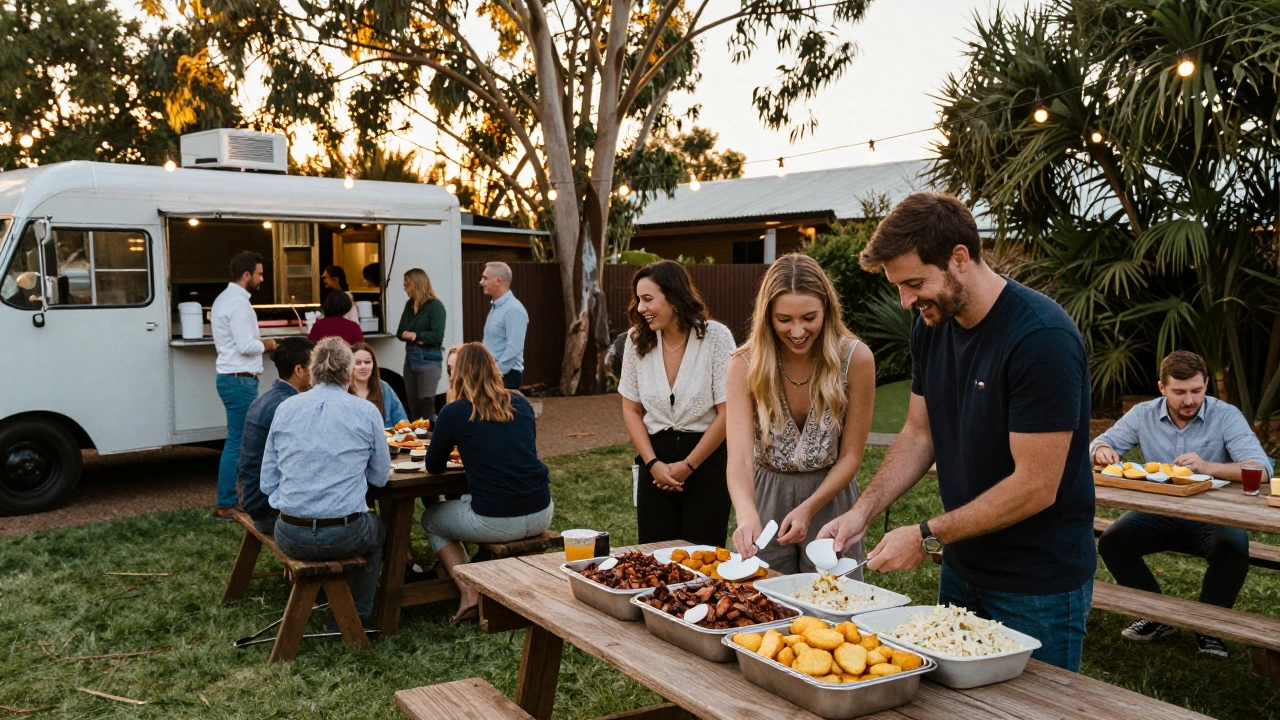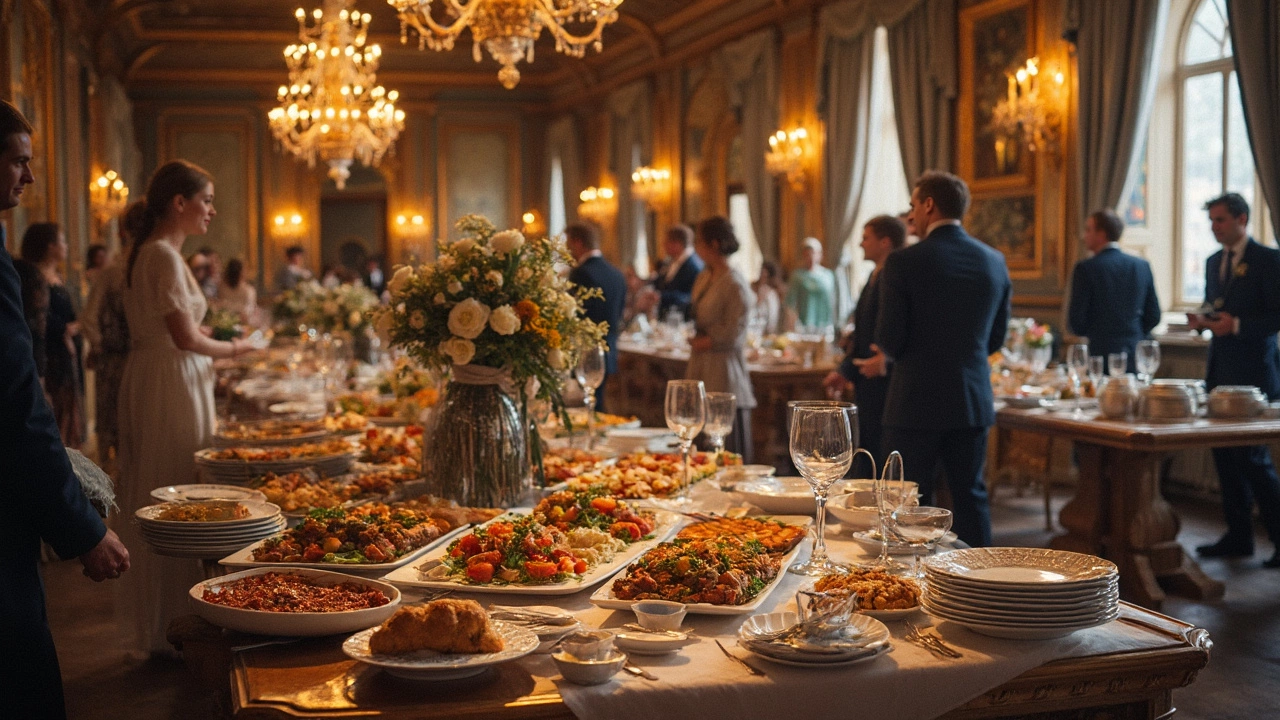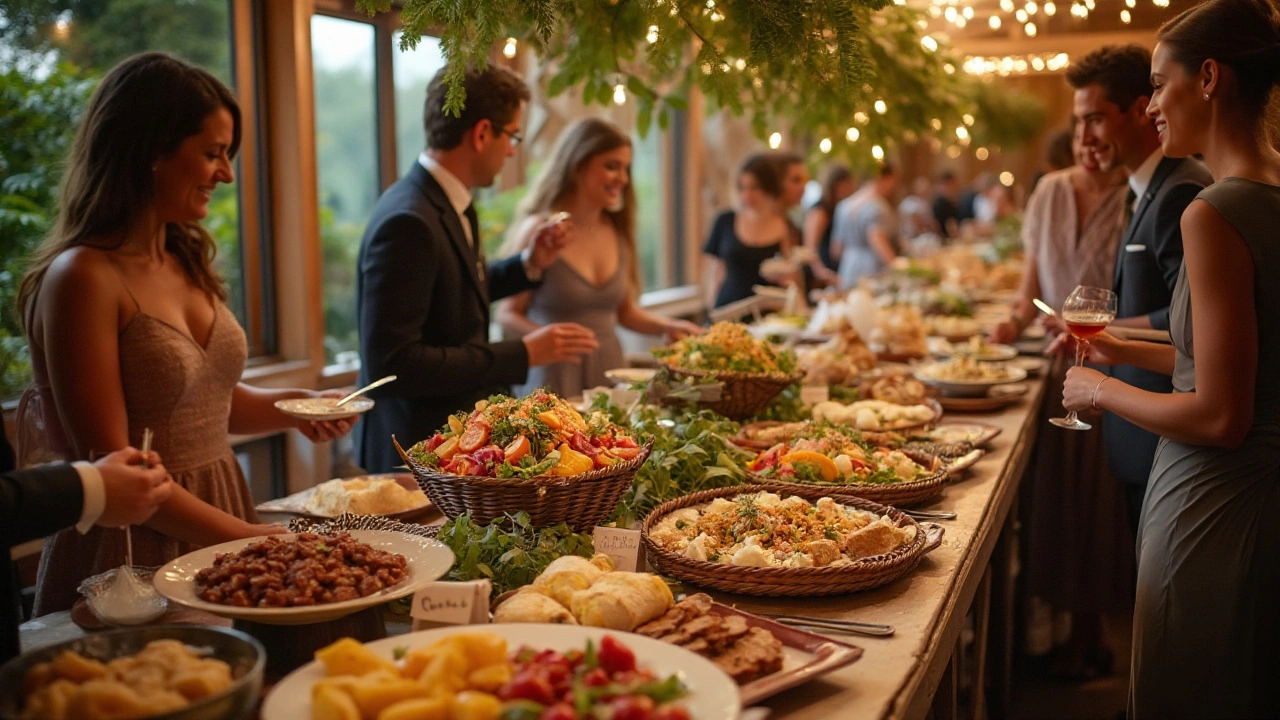Wedding Catering: Real Tips to Keep Costs Low and Guests Happy
Planning a wedding means juggling a lot of details, and food is often the biggest line item. It can feel overwhelming when the catering quote hits your inbox. The good news? You can actually understand where the price comes from and find ways to stretch your budget without sacrificing taste.
First, know what drives the price. High‑quality ingredients, staff wages, equipment rentals, and even the distance the caterer has to travel all add up. Some venues charge extra for kitchen use or for extra plates. When you see a big number, ask for a breakdown – you’ll often find hidden fees you can negotiate or cut.
DIY Wedding Catering: When You Take the Kitchen Into Your Own Hands
If you’re comfortable cooking and have a supportive crew, doing the food yourself can save a lot. Start by deciding how many dishes you can realistically prepare. Simple, seasonal menus work best – think roasted chicken, a big salad, and a few side dishes that can be made ahead. Don’t forget food safety; keep hot foods hot and cold foods cold, and have a clear plan for serving.
Gather help early. Ask family members or friends who love cooking to join a prep crew. Assign roles: one person chops, another cooks, someone else plates. Use a shared spreadsheet to track who is doing what and when. This teamwork approach not only reduces costs but also adds a personal touch that guests love.
Choosing a Wedding Buffet: The Best Way to Offer Variety
Buffets give guests freedom to pick what they like, which can be a win‑win for you and them. When you plan a buffet, think about flow – set up stations so people don’t crowd each other. Label dishes clearly, especially if you have gluten‑free, vegetarian, or nut‑free options.
To avoid waste, estimate portions based on your guest count and the type of food. A rule of thumb is about 1.5 servings per person for mains, plus a few extra sides. Talk to your caterer about reusable trays or plates – this can lower both cost and environmental impact.
Don’t overlook the little details that make a buffet feel upscale. Warm plates, fresh herbs on top, and a neat arrangement can turn a simple spread into a memorable experience. Even a modest budget can achieve that look with thoughtful presentation.
Finally, keep communication open with your caterer or your DIY team. Make a list of priorities – is it food quality, variety, or presentation? Knowing what matters most helps you allocate funds where they count. And remember, the goal is to enjoy the day, not stress over every line on the invoice.
With these tips, you’ll feel more in control of your wedding catering budget. Whether you go full‑service, DIY, or a hybrid, a clear plan and realistic expectations go a long way toward a delicious, affordable celebration.
What Is the Average Cost to Feed 100 People at a Wedding?
The average cost to feed 100 people at a wedding in Sydney ranges from $6,000 to $20,000, depending on meal style, location, and service. Plated dinners cost more than buffets, and venue restrictions can add big markups. Learn how to save without sacrificing quality.
Read moreWhy Does Wedding Catering Cost So Much?
Ever wonder why wedding catering takes such a big chunk of your budget? From ingredient quality and staff wages to hidden logistical challenges, several factors contribute to the final price tag. Understanding these elements can help in budgeting more effectively and even finding ways to save. Let's dive into what makes wedding catering so pricey and how you might manage the costs more efficiently.
Read moreCatering Your Own Wedding: A Budget-Friendly Approach
Exploring the feasibility of catering your own wedding uncovers multiple factors to consider, including cost-effectiveness, menu planning, and logistics. Balancing creativity with practicality, the choice may save money but requires thorough planning and dedication. This article delves into crucial aspects such as sourcing ingredients, managing time, and ensuring all guests' dietary needs are met, offering invaluable tips for those considering a self-catered approach. The decision involves assessing personal resources and support systems, making use of helpful insights to ensure a memorable and successful occasion.
Read moreThe Ultimate Guide to Choosing a Wedding Buffet
Deciding on a buffet for your wedding requires considering various factors such as budget, guest preferences, and venue logistics. A buffet can offer a wide variety of food options, allowing guests with diverse tastes and dietary needs to find something they enjoy. However, it's important to weigh the benefits against potential drawbacks, like the need for larger serving spaces and the possibility of food wastage. Tips for planning a successful wedding buffet include careful menu selection, efficient layout planning, and having a sufficient number of staff to maintain order.
Read more


